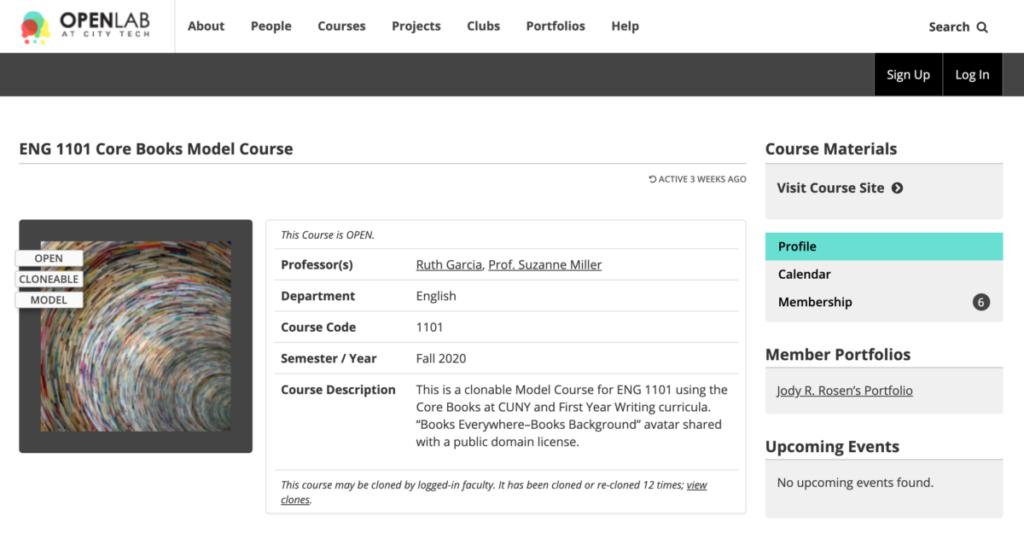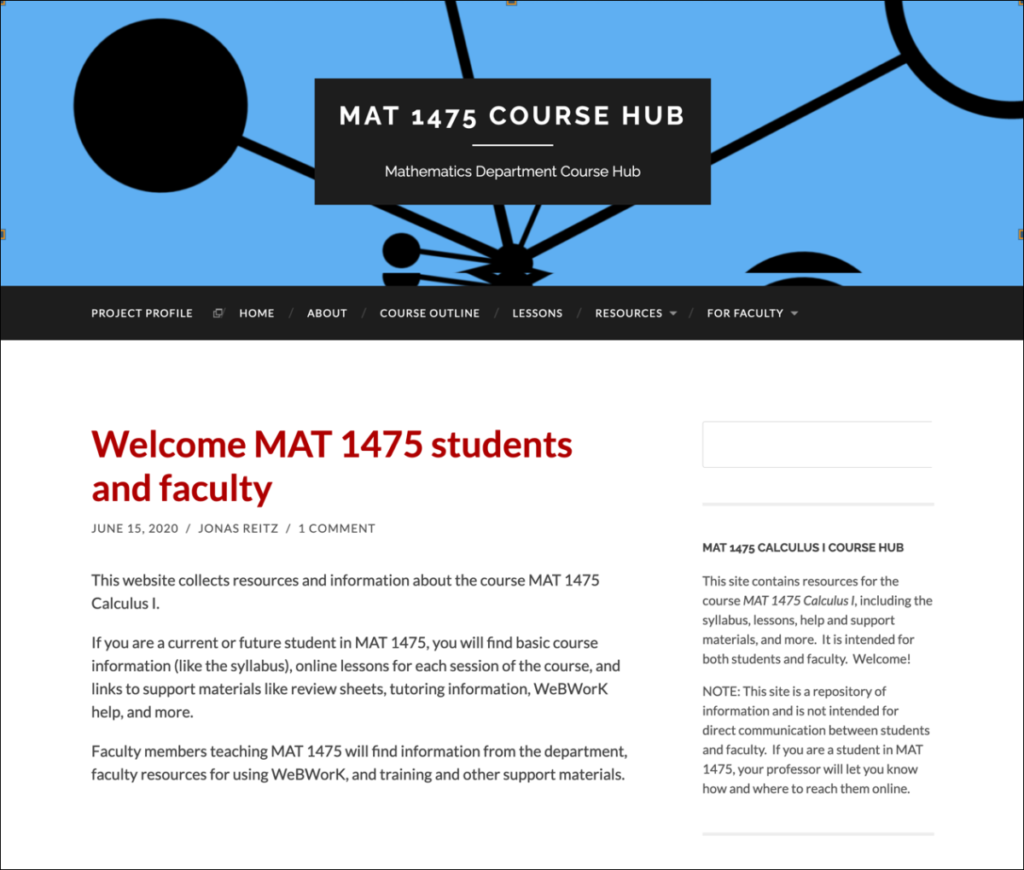
On September 21, 2020 we released version 1.7.45 of the OpenLab. It was a fairly large release, and included improvements to cloning functionality, a few additional improvements and updates, and a new plugin.
Changes to Cloning Functionality
1. In shared cloning, authorship of all content from the group being cloned will now be switched by default to the person cloning the group. For example, if you clone a model course created by Professor Smith, unless you change the authorship settings, you will appear as the author for all posts and pages on your cloned site rather than Professor Smith. This setting can be changed during the cloning process if you would prefer to retain the same authorship.
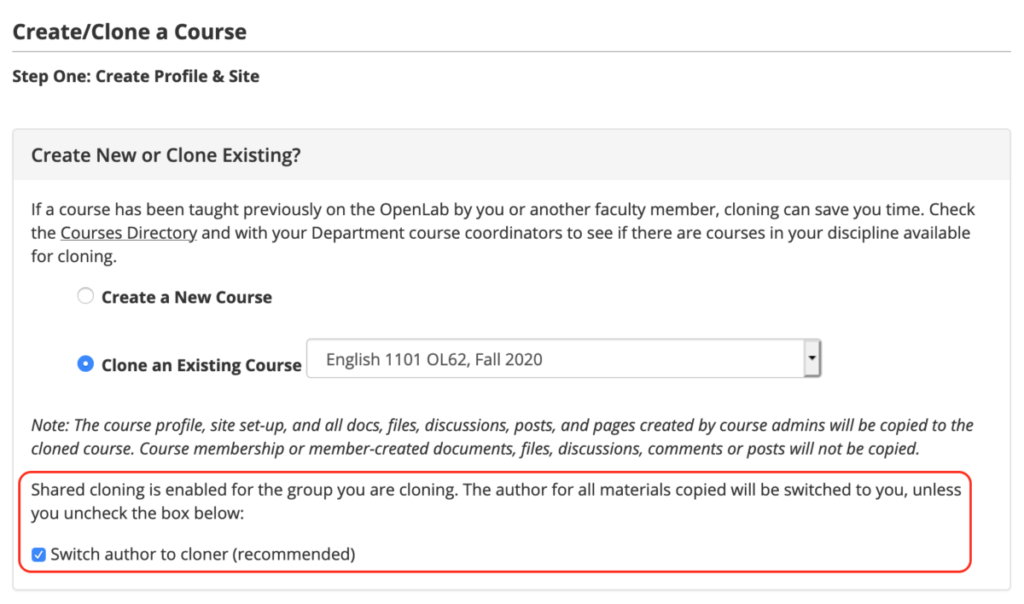
2. We made a few changes to the “Credits” section on the profile of groups that have been created through shared cloning. Credits are now called “Acknowledgements” and they have been moved down and reformatted slightly.
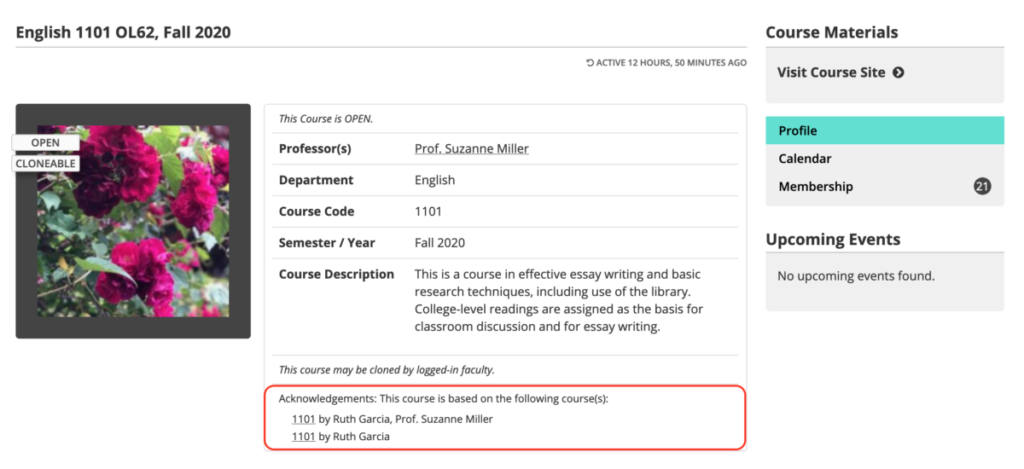
3. On cloneable groups, we added to the course profile a count that shows the number of times the group has been cloned, with a link to view all clones of that group.
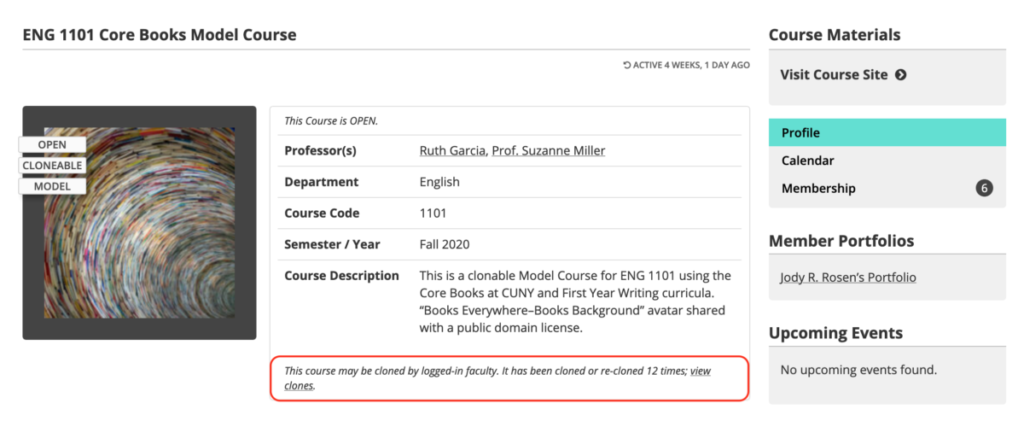
4. An additional change was made for both shared and regular cloning. Rather than copy privacy and member role settings from the group being cloned, you will now see the usual default settings during the cloning process, where you can choose whatever you would like for these settings.
Changes to Search and Badges
We made a few improvements to the new search and filter functionality introduced in the August release, and the “badges” that differentiate types of Courses, Projects, Clubs, and Portfolios:
- Searches that include members’ names are better matched with faculty name or project/club contact.
- You can now use quotes in your search to include multiple terms so that results include all terms rather than any of the terms.
- To improve clarity, we changed the short version of the “Cloneable” badge from “Clone” to the full name, “Cloneable.”
Other Fixes
- We fixed an issue with “Button” blocks, causing buttons created with an outline style to be invisible in the Block Editor.
- We fixed some display issues with the Search & Filter sidebar widget (part of the Search & Filter plugin).
- We made a few more minor theme styling fixes for Education Pro and Hemingway.
New Plugin
We added the Post Types Order plugin, which allows you to change the order of posts and pages through a simple drag and drop interface.
Retired and Removed Plugins
We retired one plugin that is no longer being updated and removed one for security reasons.
- Google Docs Embedder was no longer being maintained and was not working consistently. For this reason we retired it, which means that it will still be active on sites where it’s currently activated but won’t be available for activation on new sites.
- Captcha was removed from the wordpress.org plugin repository for security reasons. Out of caution we have removed rather than retired it. This means it won’t be available on sites where it was activated, and won’t be available for activation on new sites.
As always, please contact us with any questions!

